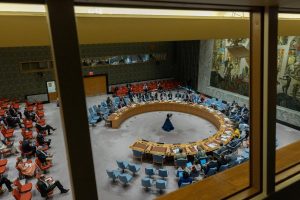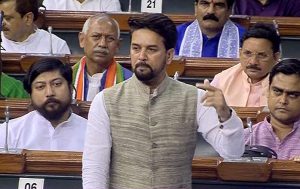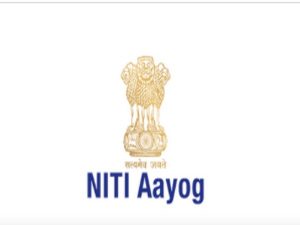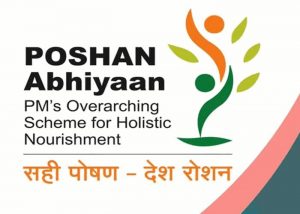Today Current Affairs: 5th August 2022 for UPSC IAS exams, State PSC exams, SSC CGL, State SSC, RRB, Railways, Banking Exam & IBPS, etc
Table of Contents
Cheerag scheme : Haryana

Senior politicians and teachers’ bodies in Haryana have raised questions on the government’s Cheerag scheme, which was recently launched to offer “free education” to Economically Weaker Section (EWS) students of government schools in “budget” private schools.
- Haryana Chief Minister Manohar Lal Khattar’s government recently launched the “Chief Minister Equal Education Relief, Assistance and Grant (Cheerag)” scheme.
- It was introduced in place of a similar scheme launched by Bhupinder Singh Hooda’s government in 2007 under Rule 134 A of the Haryana School Education Rules, 2003.
- Under the Cheerag scheme, government school students whose parents have an annual verified income of less than Rs 1.8 lakh can enroll in private schools from Class II to XII.
- The government will reimburse Rs 700 per student from Classes II to V, Rs 900 per student from Classes VI to VIII, and Rs 1,100 per student from Classes IX to XII.
UNSC Meet On Counter-Terrorism:

In a first, India will host diplomats and officials from all 15 countries of the United Nations Security Council, including China, Russia and the U.S., for a special meeting on terrorism, in Delhi and Mumbai in October.
- The meeting of the Counter-Terrorism Committee (CTC), which India is chairing for 2022 as a member of the UNSC, will focus particularly on challenges such as terrorism financing, cyberthreats and the use of drones.
- New Delhi is expected to highlight cross-border threats from Pakistan and Afghanistan at the meeting, which will come two months before India completes its tenure as an elected member of the UNSC (2021-22).
- In addition, India has been pushing for the UN members to adopt a Comprehensive Convention on International Terrorism (first proposed in 1996), which is likely to be raised during the meeting.
- While terror financing is now recognised and dealt with through mechanisms such as the Financial Action Task Force (FATF), it was necessary to build templates and “codes of conduct” for newer threats, including financing through cryptocurrency and the use of drones for terror attacks.
National Anti-Doping Bill:

The parliament passed the National Anti-Doping Bill unanimously on Wednesday by a voice vote.
- The Bill aims to provide a statutory framework for the functioning of the National Anti-Doping Agency (NADA) and the National Dope Testing Laboratory in sports.
- The Minister of Youth Affairs and Sports said India will now join the league of nations like the US, China, France or Australia, Japan, S Korea to have a law and dope test laboratory.
Key provisions:
- Prohibits athletes from engaging in doping: The legislation prohibits athletes, athlete support personnel, and other persons from engaging in doping in sports.
- Powers to NADA: The bill will give NADA powers of, “investigation, levying sanctions for anti-doping rule violations, the disciplinary procedures to be adopted and the powers of inspection, sample collection and sharing and free flow of information”.
- Disqualification for violating rules: In case of violation of doping rules, the athlete will be disqualified.
- Besides forfeiture of medals, points, and prizes, ineligibility to participate in a competition or event for a prescribed period, and financial sanctions are the actions the violator will have to face.
- Planning, monitoring and implementing anti-doping rules: The bill provides for planning, implementing, and monitoring anti-doping activities as well as investigating anti-doping rule violations.
- In consonance with UNESCO Convention on doping: It also seeks to give effect to the United Nations Educational, Scientific and Cultural Organization International Convention against doping in sports and compliance with such other obligations and commitments.
National Anti-Doping Agency (NADA):
- It was set up as a registered society under the Societies Registration Act of 1860 on 24th November, 2005 with a mandate for Dope free sports in India.
- The primary objectives are to implement anti-doping rules as per WADA (World Anti-Doping Agency) code, regulate dope control programmes, to promote education and research and create awareness about doping and its ill effects.
- The NADA has the necessary authority and responsibility for: Planning, coordinating, implementing, monitoring and advocating improvements in Doping Control. Cooperating with other relevant national organizations, agencies and other Anti-Doping Organizations etc.
FRP For Sugarcane And Sugar Industry In India:

The Cabinet Committee on Economic Affairs, at its meeting chaired by the Prime Minister here has approved the Fair and Remunerative Price (FRP) of sugarcane for sugar season 2022-23 (October – September) at ₹305 per quintal.
- The amount is for sugarcane with a basic sugar recovery rate of 10.25%.
- The Centre has also announced a premium of ₹3.05 per quintal for each 0.1% increase in recovery of sugar over and above 10.25% and reduction in FRP by ₹3.05 per quintal for every 0.1% decrease in recovery.
- FRP is the price declared by the government, which mills are legally bound to pay to farmers for the cane procured from them.
- Delays in payment can attract an interest up to 15% per annum, and the sugar commissioner can recover unpaid FRP as dues in revenue recovery by attaching properties of the mills.
- The payment of FRP across the country is governed by the Sugarcane Control order, 1966 issued under the Essential Commodities Act (ECA), 1955 which mandates payment within 14 days of the date of delivery of the cane.
- It has been determined on the recommendation of the Commission for Agricultural Costs and Prices (CACP) and announced by the Cabinet Committee on Economic Affairs (CCEA).
- CACP is an attached office of the Ministry of Agriculture and Farmers Welfare. It is an advisory body whose recommendations are not binding on the Government.
- CCEA is chaired by the Prime Minister of India.
- The FRP is based on the Rangarajan Committee report on reorganizing the sugarcane industry.
Udyam Portal:

Around one crore Micro, Small and Medium Enterprises (MSMEs) have registered on the Udyam portal within a span of 25 months, according to the Union Minister of Micro, Small, and Medium Enterprises.
- Udyam Portal was launched on 1st July, 2020.
- It’s an online system for registering MSMEs, launched by the Union MSME ministry.
- Further, it is linked to the databases of the Central Board of Direct Taxes(CBDT) and Goods and Services Tax Network (GSTN).
- GSTN is a unique and intricate IT enterprise that establishes a channel of communication and interaction between taxpayers, the central and various state governments, and other stakeholders.
- It is fully online, does not require any documentation, and is a step towards Ease of Doing Business for MSMEs.
Call For Applications For AIC And AICC: NITI Aayog

Atal Innovation Mission (AIM), NITI Aayog launched Call for Applications for its two leading programs Atal Incubation Centre (AIC) and Atal Community Innovation Centre (ACIC).
- The call for applications is a step to expand the current ecosystem of incubators and to provide them with access to global benchmarks and best practices.
- Both the programs envision creating and supporting the innovative ecosystem in the country by establishing world-class institutions which shall help budding entrepreneurs of the country.
- These AICs and ACICs will play a pivotal role in enriching the start-up and entrepreneurship ecosystem of India and echo the anthem of Atmanirbhar Bharat.
- Atal Incubation Centre is an initiative of the AIM, NITI Aayog to foster innovation and entrepreneurial spirit while creating a supportive ecosystem for start-ups and entrepreneurs in India.
- Each AIC is supported with a grant of up to INR 10 crores over a period of 5 years.
- Since 2016, AIM has established 68 Atal Incubation Centres across 18 states and 3 UTs which have supported more than 2700 startups.
Atal Community Innovation Centre:
- ACIC is envisaged to serve the unserved/underserved areas of the country with respect to the start-up and innovation ecosystem
- Each ACIC is supported with a grant of up to INR 2.5 crores over a period of 5 years.
- AIM has established 14 Atal Community Innovation Centres across the country.
Saksham Anganwadi And Poshan 2.0:

Ministry of Women and Child Development has issued Operational Guidelines regarding implementation of Saksham Anganwadi and Poshan 2.0.
- It will also promote Aadhaar seeding of beneficiaries to ensure last-mile tracking of take-home rations and tracking of migration of pregnant women and lactating mothers.
Saksham Anganwadi and Poshan 2.0:
- In Financial Year (FY) 2021-22, the Government of India (GoI) restructured the Integrated Child Development Services (ICDS) and POSHAN (Prime Minister’s Overarching Scheme for Holistic Nourishment) Abhiyaan into Saksham Anganwadi and POSHAN 2.0
- The restructured scheme consists of the following sub-schemes:
- ICDS
- POSHAN Abhiyaan
- Scheme for Adolescent Girls (SAG)
- National Creche Scheme
- Fund: Poshan 2.0 is an ongoing Centrally-sponsored programme being implemented through the State Governments/ UT administrations based on a cost sharing ratio between the Central Government and the State Government.
- Vision: It seeks to address the challenging situation of malnutrition among children up to the age of 6 years, adolescent girls (14-18 years) and pregnant and lactating women.
- It is crucial for India’s development as women and children comprise over two thirds of India’s population.
- The achievement of the Sustainable Development Goals lies at the fore-front of this programme design.
- It shall contribute to the SDGs, specifically, SDG 2 on Zero Hunger and SDG 4 on Quality Education.
- The Mission will focus on the fundamental importance of nutrition and early childhood care and education for the well-being, growth and development of children into healthy and productive adults.
- The scheme is open to all eligible beneficiaries and the only pre-condition is that the beneficiary has to be registered at the nearest Anganwadi centre with Aadhaar identification.
- The beneficiaries for the scheme will be adolescent girls in the age group of 14-18 years who will be identified by the states concerned.
- AYUSH shall propagate the campaigns of ‘Yoga at Home, Yoga with Family’ and AWCs and households to encourage beneficiaries to practice yoga and stay healthy.
- The Ministry of AYUSH shall extend technical support for scheme implementation.
- Efforts shall be made for 100% measurement of the children.
- It promotes the Use of jaggery, Fortification with indigenous plants like moreng (sahjan/drumstick) and ingredients that provide higher energy intake in smaller volume of food.
Minerals Security Partnership:

There is growing concern in the Government over India not finding a place in the Minerals Security Partnership.
- Minerals Security Partnership is an ambitious new US-led partnership to secure supply chains of critical minerals, aimed at reducing dependency on China.
- Demand for critical minerals, which are essential for clean energy and other technologies is projected to expand significantly in the coming decades.
Critical Minerals:
- Critical minerals are elements that are the building blocks of essential modern-day technologies and are at risk of supply chain disruptions.
- These minerals are now used everywhere from making mobile phones, computers to batteries, electric vehicles and green technologies like solar panels and wind turbines.
Major Critical Minerals:
- Graphite, Lithium and Cobalt are used for making EV batteries.
- Aerospace, communications and defence industries also rely on several such minerals as they are used in manufacturing fighter jets, drones, radio sets and other critical equipment.
- While Cobalt, Nickel and Lithium are required for batteries used in electric vehicles, rare earth minerals are critical, in trace amounts, in the semiconductors and high-end electronics manufacturing.
Minerals Security Partnership (MSP):
- It is an initiative by the United States to bolster critical mineral supply chains.
- Partners: Australia, Canada, Finland, France, Germany, Japan, the Republic of Korea, Sweden, the United Kingdom, the United States, and the European Commission.
- Objective: The goal of the MSP is to ensure that critical minerals are produced, processed, and recycled in a manner that supports the ability of countries to realize the full economic development benefit of their geological endowments.
- Focus would be on the supply chains of minerals such as Cobalt, Nickel, Lithium and also the 17 “rare earth” minerals.




